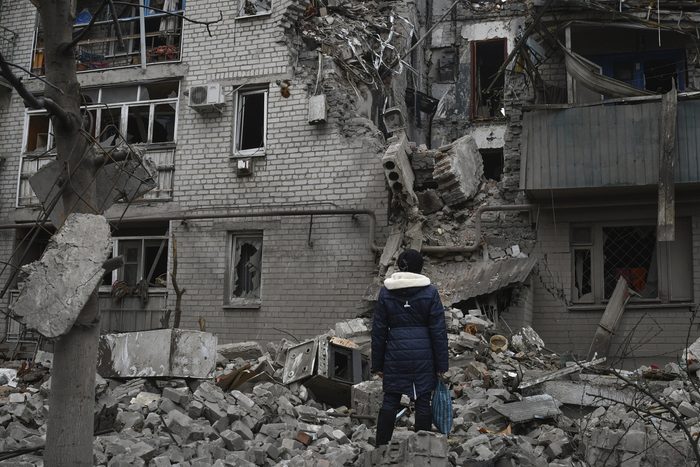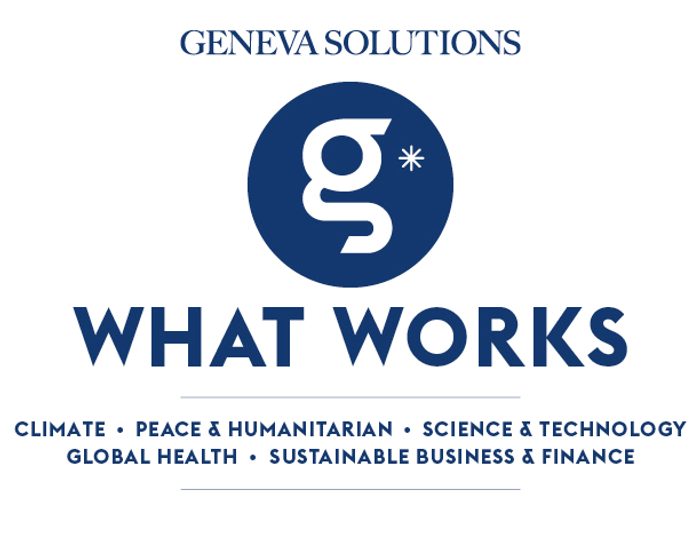Good morning, this is Pip. Since Russia invaded Ukraine in February this year, Russian soldiers have been accused of “systematically” subjecting Ukrainians to sexual violence. While the conflict rages on, the true scale of the violations are difficult to gauge, but this hasn’t stopped organisations seeking justice.
We’re hearing about a Geneva-based initiative that is working with the Ukrainian government to set up an urgent interim reparations programme to help survivors. |
|
Seeking justice for survivors of sexual violence in Ukraine
|
|

A woman stands among the debris of a house destroyed by a Russian air strike in Chasiv Yar, Ukraine, November 2022. (Keystone/AP Photo/Andriy Andriyenko)
|
|
Since Russia invaded Ukraine in February this year, reports have emerged of women, men and children being subjected to sexual violence by Russian soldiers.
A report released by the UN in October documented what it described as “patterns” of rape and sexual violence. The UN commission of inquiry on Ukraine said victims of alleged attacks ranged in age from four to over 80 years old, and detailed a series of harrowing cases, including women being gang-raped and family members being forced to witness their loved ones being sexually abused.
Ukraine’s leadership have consistently accused Russia of using rape as a weapon of war since the invasion began. Addressing an international conference on preventing sexual violence during conflict in London earlier this month, Ukrainian first lady Olena Zelenska said sexual violence was being perpetrated “systematically and openly” by Russian soldiers.
The true scale of the sexual violence perpetrated against Ukrainians is not yet known, and will likely not be fully understood until long after the conflict has ended. In its report, the UN noted that cases can be challenging to investigate due to the current security situation in the country and victims being forcibly displaced, making it harder for them to access health and support services.
Survivors also often take years to speak about what has happened to them due to the trauma, and fear of stigmatisation by their families and communities. It has taken many years for survivors of sexual assault during Russia’s earlier invasion of eastern Ukraine in 2014 to begin speaking out.
However, the difficulties in documenting the violations in Ukraine has not stopped a Geneva-based initiative seeking justice for survivors.
Read the full story on Geneva Solutions
|
|
Here's what else is happening
|
|
GS news is a new media project covering the world of international cooperation and development. Don’t hesitate to forward our newsletter!
Have a good day!
|

|
|
Avenue du Bouchet 2
1209 Genève
Suisse
|
|
|
|








